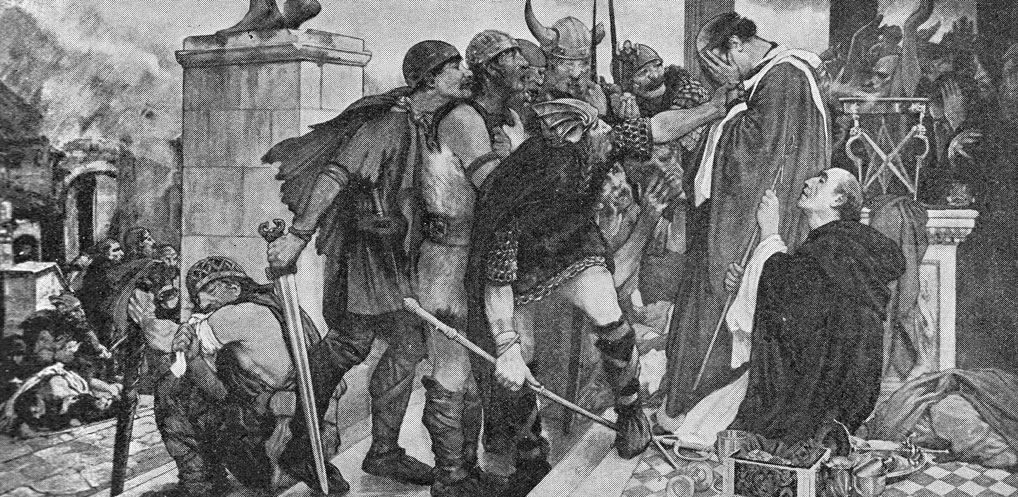Loading...
In a country fragmented by Roman withdrawal during the 5th century, the
employment of Germanic mercenaries by local rulers in Anglo-Saxon Britain was
commonplace. These mercenaries became settlers, forcing Romano-British
communities into Wales and the West Country. Against a background of spreading
Christianity, the struggles of rival British and Anglo-Saxon kingdoms were exploited by
the Vikings, but eventually contained by the Anglo-Saxon king, Alfred of Wessex. His
descendants unified the country during the 10th century, however, subsequent weak
rule saw its 25-year incorporation into a Danish empire before it finally fell to the
Norman invasion of 1066.Scholars of the early Church have long known that the term ‘Dark Ages’ for the 5th to
11th centuries in Britain refers only to a lack of written sources, and gives a false
impression of material culture. The Anglo-Saxon warrior elite were equipped with
magnificent armour, influenced by the cultures of the late Romans, the Scandinavian
Vendel people, the Frankish Merovingians, Carolingians and Ottonians, and also the
Vikings.Today’s guest is Stephen Pollington, author of ”Anglo-Saxon Kings and Warlords AD 400-1070.” We look at the kings and warlords of the time with latest archaeological research.
employment of Germanic mercenaries by local rulers in Anglo-Saxon Britain was
commonplace. These mercenaries became settlers, forcing Romano-British
communities into Wales and the West Country. Against a background of spreading
Christianity, the struggles of rival British and Anglo-Saxon kingdoms were exploited by
the Vikings, but eventually contained by the Anglo-Saxon king, Alfred of Wessex. His
descendants unified the country during the 10th century, however, subsequent weak
rule saw its 25-year incorporation into a Danish empire before it finally fell to the
Norman invasion of 1066.Scholars of the early Church have long known that the term ‘Dark Ages’ for the 5th to
11th centuries in Britain refers only to a lack of written sources, and gives a false
impression of material culture. The Anglo-Saxon warrior elite were equipped with
magnificent armour, influenced by the cultures of the late Romans, the Scandinavian
Vendel people, the Frankish Merovingians, Carolingians and Ottonians, and also the
Vikings.Today’s guest is Stephen Pollington, author of ”Anglo-Saxon Kings and Warlords AD 400-1070.” We look at the kings and warlords of the time with latest archaeological research.
Cite This Article
"Shining Light on the British Dark Ages: Anglo-Saxon Warfare, 400-1070" History on the Net© 2000-2024, Salem Media.
July 27, 2024 <https://www.historyonthenet.com/shining-light-on-the-british-dark-ages-anglo-saxon-warfare-400-1070>
More Citation Information.






